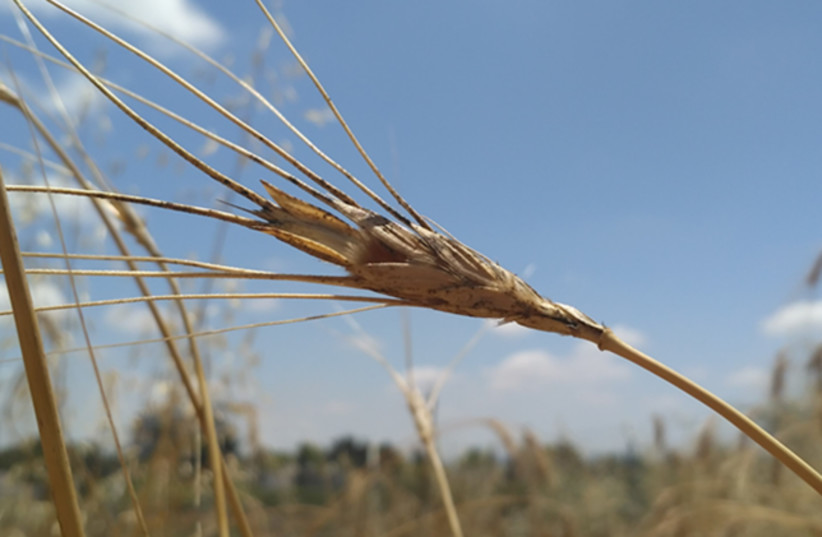The study used marker-assisted breeding (MAB) to successfully identify genes that can increase grain protein content, as well as resist the fungal disease known as stripe rust.
By JERUSALEM POST STAFF OCTOBER 21, 2020

Professors from the University of Haifa were recognized alongside colleagues from the University of California, Davis, by the US-Israel Binational Agricultural Research and Development Fund (BARD) for their accomplishments in fighting food insecurity.
The recognition marks the “outstanding scientific achievement and excellence” achieved by Prof. Tzion Fahima, head of the Laboratory of Plant Genomics and Disease Resistance at the University of Haifa’s Institute of Evolution and UC Davis’s Prof. Jorge Dubcovsky for their collaboration spanning two decades.
The 20-year study saw Fahima and Dubcovsky use marker-assisted breeding (MAB) to successfully identify genes that can increase grain protein content, as well as resist the fungal disease known as stripe rust.
As a result of the study’s findings, wheat grains can now be made to be richer in protein and other minerals, making them more nutritious. In addition, it will make them more resistant to fungal diseases, allowing for greater crop yields and saving the world economy millions of dollars.
With this in mind, it is no surprise that BARD recognized the study as one of the top three successful projects out of the 1,330 different programs that have taken place throughout its 40-year history.
“We have recently completed the BARD 40-year research impact assessment. The external review committee that oversaw the evaluation process was deeply impressed by your research approach and the exceptional outcomes of the successful genetic mapping and positional cloning research on wild emmer wheat,” BARD’s executive director Prof. Yoram Kapulnik wrote in a letter to Fahima.
“The introgression of the identified gene to increase wheat protein concentration and the multiple broad-spectrum stripe-rust resistance genes into new varieties of Bread Wheat is a stellar scientific breakthrough for research, and is of the highest importance towards ensuring global nutritional stability, as exemplified by the impact of the research outcomes on wheat breeding programs globally, from Europe, to India, to Australia and North America,” Kapulnik wrote.
“This is a great honor for me and all my students, some of whom already hold senior positions in academia in research institutions in Israel and around the globe,” Fahima said in a statement after hearing the news.
“BARD has been essential to making our ideas a reality by providing support for many years. I am glad that our research in wheat improvement is featured in this BARD anniversary as an example of the value of research to our society, which is the main driver for our efforts,” Dubcovsky added.“
There is no doubt that this achievement belongs to the scientists – and it’s a testament to the excellent scientific cooperation between the two countries,” Kapulnik added.
“As food security is being tested globally, it is highly important to promote these kinds of initiatives and continue to develop the knowledge, research and technology needed to ensure that all have access to healthy, nutritious food. These kind of initiatives are the ones that can help make this possible.”
